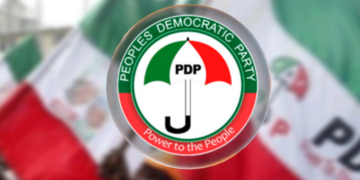A United States-based Nigerian-American professor, author, media scholar, newspaper columnist, blogger and activist, Farooq Kperogi, has projected that Nigeria’s Labour Party (LP) presidential candidate, Peter Obi, may emerge the next President by default owing to infractions by two major political parties.
In his weekly syndicated column on Saturday, Kperogi said he uncovered some “facts” from the Independent National Electoral Commission (INEC) showing that LP’s Obi may become Nigeria’s president in 2023 because the two leading presidential candidates – Asiwaju Bola Tinubu and Atiku Abubakar, of the All Progressives Congress (APC) and the Peoples Democratic Party (PDP) respectively – have violated the Electoral Act 2022, which may cause them to be disqualified.
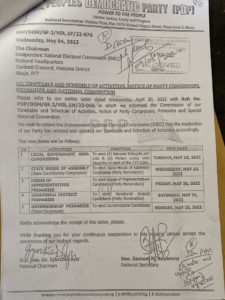
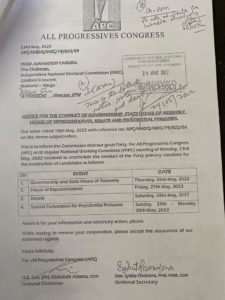
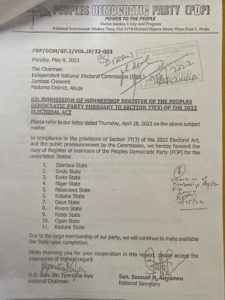
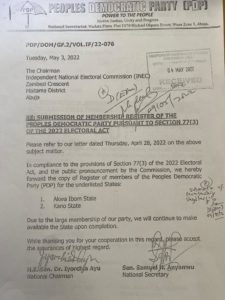
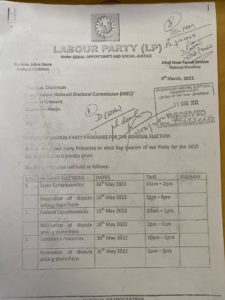
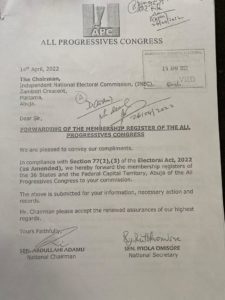
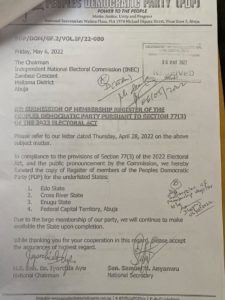
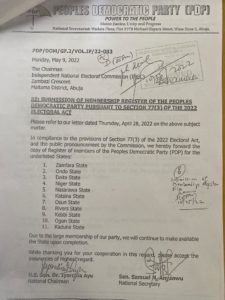
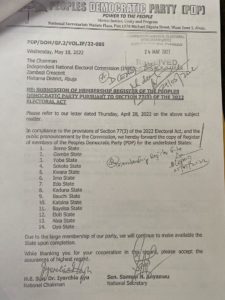
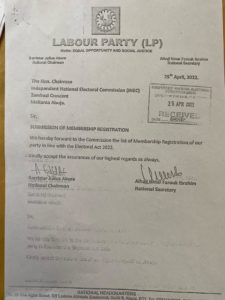
“Facts I have uncovered from the Independent National Electoral Commission (INEC) show that Labour Party’s Peter Obi may become Nigeria’s president next year by default because Bola Tinubu and Atiku Abubakar, candidates for the All Progressives Congress (APC) and the Peoples Democratic Party (PDP) respectively, have violated the Electoral Act 2022, which may cause them to be disqualified if Obi sues them.
“The Electoral Act 2022 requires political parties to notify INEC of their intent to conduct primary elections at least 21 days before the date of their convention. It also requires parties to submit their membership registers to it at least 30 days before their primary election. The APC didn’t meet the first requirement and the PDP failed the second requirement. The Labour Party met both,” Kperogi said.
He alluded to a number of official documents (correspondences from the political parties) obtained from an INEC insider showing that the APC didn’t notify INEC of its intent to conduct its primary election 21 days before its convention.
Section 82 of the Electoral Act 2022 says the penalty for this infraction is outright disqualification of the candidates of political parties.
Section 82 (1) of the Electoral Act 2022 says, “Every political party shall give the Commission at least 21 days’ notice of any convention, congress, conference, or meeting which is convened for the purpose of ‘merger’ and electing members of its executive committees, other governing bodies or nominating candidates for any of the positions specified under this Act.”
Section 82 (5) then says, “Failure of a political party to notify the Commission as stated in subsection (1) shall render the convention, congress, conference, or meeting invalid.”
According to Kperogi, by implication, an invalid convention can’t produce a valid presidential candidate for an election.
“Now, let’s look at how the APC, the PDP, and the Labour Party fared in their observance of this requirement of the Electoral Act.
“Records at INEC show that the APC notified INEC of its intent to hold its convention on May 23, 2022 (before INEC granted it an unfair extension, which other parties also benefited from) and held its convention on June 8. That’s just 17 days’ notice, which falls short of the 21 days’ notice the Electoral Act 2022 requires.
“Based on its May 23 letter to INEC of its schedule of primaries, the APC’s June 8 primary election is invalid in the eye of the Electoral Act 2022, and Bola Tinubu may be disqualified if he’s sued.
“Unlike the APC, however, the PDP did give INEC more than 21 days’ notice prior to the conduct of its presidential primaries. It notified INEC of its intention to conduct its primary election on May 4 and conducted its primary election on May 28. That’s about 25 days’ notice, which puts it in the clear on this provision.
“The Labour Party, like the PDP, complied with the requirements of Section 82(1) of the Electoral Act 2022. It notified INEC of its intent to conduct its primaries on March 9, 2022, and held its convention on May 30. That’s more than 80 days’ notice,” he pointed out.
On the issue of submission of party’s membership register to the Commission 30 days before congress, convention and primary election by any political party, Section 77 (2) of the Electoral Act 2022 mandates political parties to submit their membership registers to INEC at least 30 days before the conduct of their primary elections.
The law specifically says, “Every political party shall maintain a register of its members in both hard and soft copy.” Subsection 3 also says, “Each political party shall make such register available to the Commission not later than 30 days before the date fixed for the party primaries, congresses or convention.”
Kperogi noted that the penalty for failure to abide by this provision of the Electoral Act is exclusion from participation in elections of the candidates of the political parties that infract the provision.
Section 84 (13) Electoral Act 2022 says, “Where a political party fails to comply with the provisions of this Act in the conduct of its primaries, its candidate for that election shall not be included in that election for the particular position in issue.”
“Now, let’s see how the APC, the PDP, and the Labour Party fared in this provision of the Electoral Act.
The APC submitted its membership register to INEC on April 25 and conducted its primary election on June 8. That’s clearly more than 30 days. So, it’s in the clear here.
“But the PDP fell afoul of Section (3) of the Electoral Act 2022. Although an INEC document titled “Table of Submission by 18 Political Parties” shows that the PDP submitted its membership register to INEC on April 29, which would make it exactly 30 days since it conducted its convention on May 28, the PDP’s series of correspondence with INEC that an insider shared with me indicates that the party submitted its register in four installments, with the earliest being May 3. May 3 to May 28 is less than 30 days.
“The last correspondence the PDP had with INEC over its membership register is dated May 18. So, technically, the PDP didn’t turn in its complete membership register to INEC until May 18. The Electoral Act makes no provision for a bit-by-bit submission of membership register.
“The Labour Party abided by this provision of the Electoral Act. It submitted its membership register to INEC on April 25, which is more than 30 days before its convention, which was held on May 30,” Kperogi stated.
The university teacher, therefore, blamed INEC for failing to insist on the implementation of the relevant provisions of the Electoral Act 2022 in that regard.
“Unfortunately, INEC erred in not notifying the APC and the PDP that their primary elections—and their candidates for election— were invalid because they flouted the Electoral Act. INEC erred even further by going ahead to publish the names of people who emerged from invalid primaries even when the Electoral Act mandates it to not include the names of candidates who run afoul of the Electoral Act,” Kperogi added.
He further alluded to the the relevant sections of the Electoral Act 2022 to buttress his point that INEC is complicit in the violation of the electoral law.
He cited Section 29 (1) of the Electoral Act 2022 which says, “Every political party shall, not later than 180 days before the date appointed for a general election under this Act, submit to the Commission, in the prescribed Forms, the list of the candidates the party proposes to sponsor at the elections, who must have emerged from valid primaries conducted by the political party.”
Also, Subsection 3 says, “The Commission shall, within seven days of receipt of the personal particulars of the candidates, publish same in the constituency where the candidate intends to contest the election.”
“As I have shown, the candidates for both the APC and the PDP did not emerge “from valid primaries” because they contravened significant provisions of the Electoral Act that rendered their elections void.
“Yet INEC went ahead to publish the particulars of candidates for president and the National Assembly on June 24.
“In other words, even INEC is in violation of the Electoral Act 2022, and this isn’t the first time it is. In its entanglements with the Ahmed Lawan and Godswill Akpabio senatorial nomination fraud, INEC also refused to exercise its power of rejection.
“Section 84 subsection 13 of the Electoral Act 2022 empowers INEC to write to political parties and alert them to the fact that the names they sent to it were inconsistent with the reports of the primary elections monitored by its staff. Had INEC done this, it would have obviated the need for litigation by candidates who have been shortchanged by their parties,” Kperogi stated.


